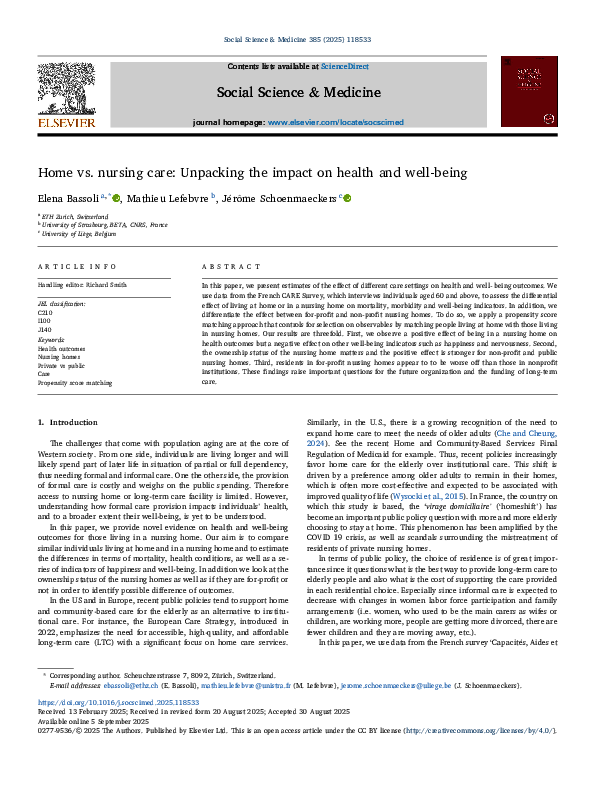Abstract
In this paper, we present estimates of the effect of different care settings on health and well- being outcomes. We use data from the French CARE Survey, which interviews individuals aged 60 and above, to assess the differential effect of living at home or in a nursing home on mortality, morbidity and well-being indicators. In addition, we differentiate the effect between for-profit and non-profit nursing homes. To do so, we apply a propensity score matching approach that controls for selection on observables by matching people living at home with those living in nursing homes. Our results are threefold. First, we observe a positive effect of being in a nursing home on health outcomes but a negative effect on other well-being indicators such as happiness and nervousness. Second, the ownership status of the nursing home matters and the positive effect is stronger for non-profit and public nursing homes. Third, residents in for-profit nursing homes appear to to be worse off than those in nonprofit institutions. These findings raise important questions for the future organization and the funding of long-term care.
Keywords
Health outcomes, Nursing homes, Private vs public, Care, Propensity score matching



